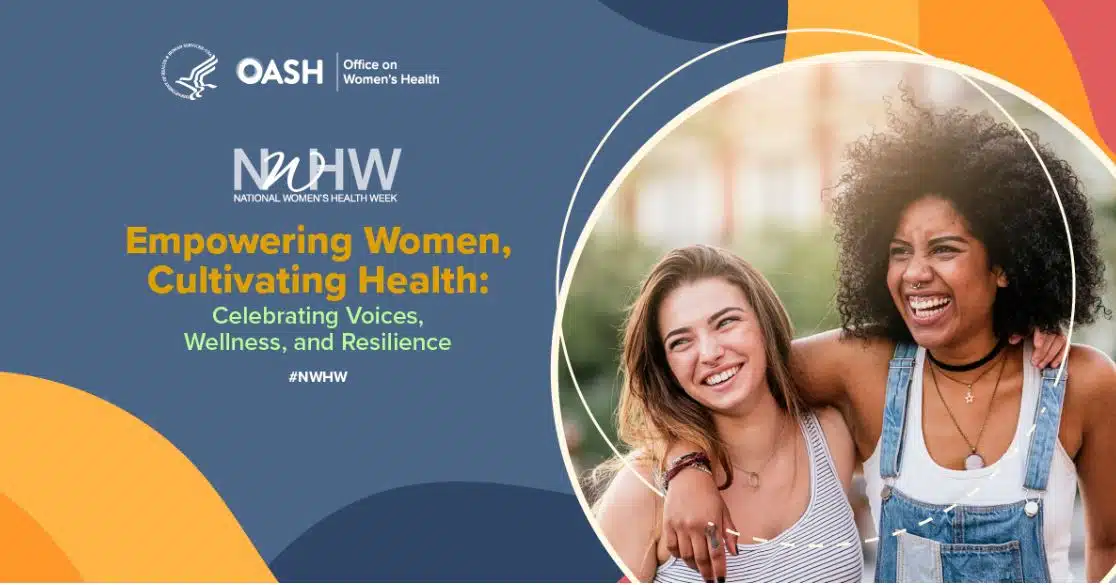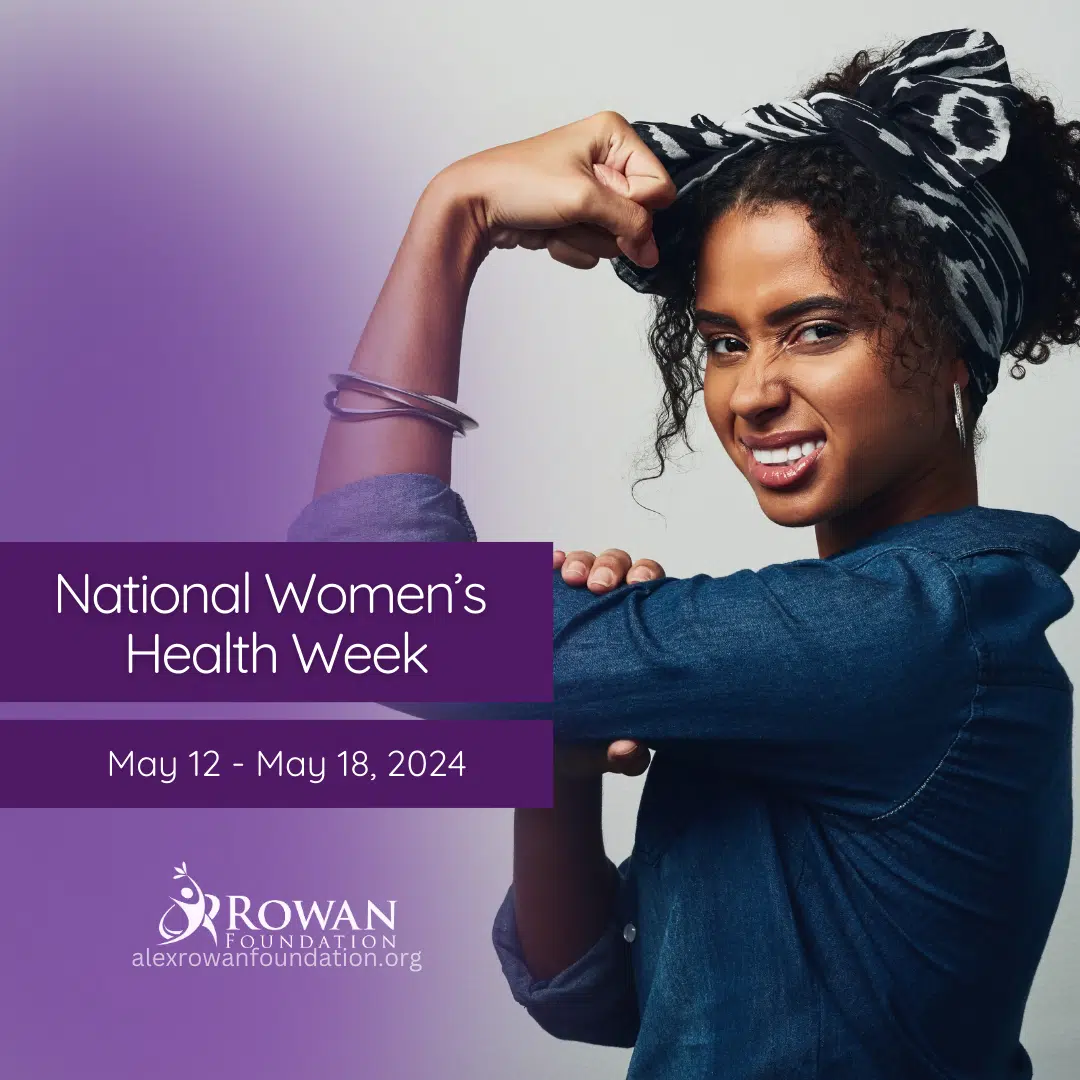National Women’s Health Week (NWHW) takes place the week following Mother’s Day each May, and it’s the perfect time to celebrate the strength, resilience, and well-being of women everywhere. May is also Women’s Health Month, and serves as a reminder about the importance of prioritizing women’s health and well-being, not just for individuals but for society as a whole.
Empowerment
This year, the core national theme for NWHW 
Empowerment begins with knowledge. When women are equipped with information about their bodies, health, and potential risks, they are better equipped to make informed decisions about their well-being. This knowledge empowers them to take charge of their health, advocate for themselves in medical settings, and make lifestyle choices that promote wellness and longevity.
New Educational Videos
This is an ongoing and mission-driven process for the Rowan Foundation and, in recognition of NWHW, we are introducing two new tools to our suite of educational resources this week. We are excited to share two new videos we created: One about genetic or inherited thrombophilia and the other about the emerging promise of genetic testing in contraception decision-making. You can view these videos below.
Why Women’s Health and Clotting?
Education about women’s health and clotting is important for several reasons:
- Awareness: Many women are unaware of the risk factors and symptoms of dangerous clotting, including clotting that results from inherited clotting disorders or thrombophilia. This can lead to delayed diagnosis and treatment. By increasing awareness and education, we can empower women to recognize potential warning signs and seek medical attention promptly.
- Prevention: Knowledge is key to preventing clotting disorders. By understanding lifestyle factors and underlying conditions that might result in dangerous clotting, women can take proactive steps to reduce their risk. This may include maintaining a healthy weight, staying physically active, quitting smoking, and choosing birth control options that meet specific health needs or do not pose clotting risks.
- Treatment: For women living with clotting disorders, education is essential for effectively managing their condition and minimizing the risk of complications. Understanding medication regimens, lifestyle modifications, and when to seek medical help can improve outcomes and quality of life.
- Advocacy: Empowered women are better equipped to advocate for themselves in healthcare settings. By being knowledgeable about their health and clotting risks, women can actively participate in treatment decisions, ask informed questions, and ensure that their healthcare needs are met.
- Research and Innovation: Increased awareness and education about women’s health and clotting can drive advancements in research and innovation. By highlighting the importance of studying clotting disorders in women, we can support efforts to develop better diagnostic tools, treatments, and preventive strategies specific to women’s health.
As we recognize National Women’s Health Week, the Rowan Foundation is committed to empowering women through knowledge. Please visit and share some of the many educational tools – including check lists, infographics, and videos – included in our suite of women’s health and clotting resources.
By raising awareness, providing education, and fostering a culture of proactive healthcare, our aim is to support women in living their healthiest, happiest, and most empowered lives. Together, let’s strive for a future where every woman has the information and resources she needs to prioritize her well-being and thrive.





